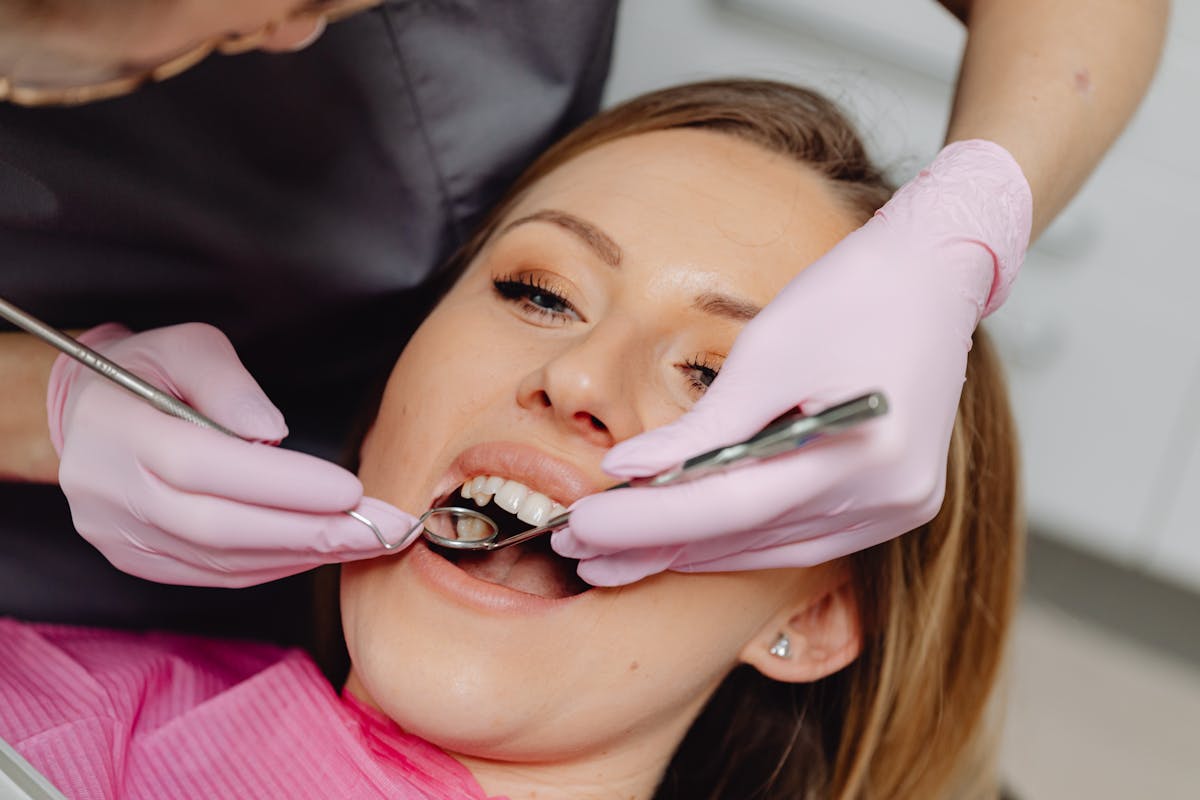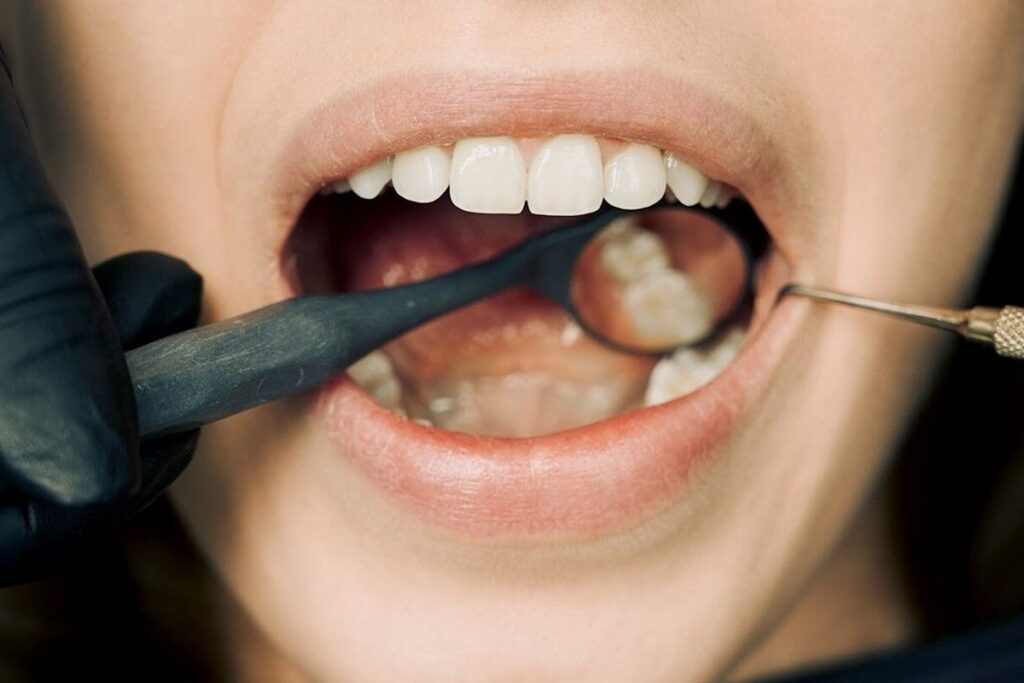The underpinning significance of expert prosthodontic treatment in the domain of restorative dentistry cannot be overstated. Such treatment, delivered by a specialist, guarantees a precise diagnosis and thorough management of compromised or missing teeth, enabling an effective restoration of oral function and aesthetics. However, the impact of this specialty extends beyond the mere physical restoration of dental structures. It has profound implications for patients’ overall oral health, potential prevention of further complications, and an undeniable influence on their quality of life. The intricacies of this impact warrant further exploration.
Understanding Prosthodontics
Although the field of prosthodontics might initially seem complex, it is fundamentally a specialized branch of dentistry focused on the diagnosis, treatment planning, rehabilitation, and maintenance of oral function, comfort, appearance, and health of patients with clinical conditions associated with missing or deficient teeth. Prosthodontic innovations have transformed the field into a dynamic, patient-centered discipline. Patient education is instrumental in this process, allowing individuals to understand and appreciate the complexity of procedures ranging from dental implants to veneers. Prosthodontics has the ability to restore not only dental function but also an individual’s self-esteem and personal comfort, making it an indispensable part of modern dentistry. Essentially, understanding prosthodontics means recognizing its role in enhancing oral health, personal comfort, and overall quality of life.
Role of Prosthodontics in Dentistry
Building on the foundation of understanding prosthodontics, we can further explore its pivotal role in the broader context of dentistry. Prosthodontics, as a specialized branch of dentistry, has a profound impact on restoring the oral functionality and aesthetic aspects of patients. It encompasses the design, manufacture, and fitting of artificial replacements for teeth and other parts of the mouth, greatly improving patient satisfaction. The role of prosthodontics extends beyond mere restoration; it also encompasses prevention and intervention for oral health issues. Hence, prosthodontics plays an indispensable role in extensive dental care, contributing to the overall oral health and well-being of patients. It should be emphasized that a nuanced understanding of prosthodontics is essential for effective restorative dentistry.
Expertise Required for Prosthodontic Treatment
The expertise required for prosthodontic treatment encompasses a deep understanding of the specialization, proficiency in executing dental restorations, and the ability to navigate complex dental issues. This necessitates rigorous education, thorough training, and extensive experience in the field. These competencies guarantee the delivery of high-quality and effective prosthodontic care to patients with varying dental conditions.
Understanding Prosthodontic Specialization
Why is specialization in Prosthodontics essential in restorative dentistry? The answer lies in the complexities and unique challenges that each patient presents. Prosthodontic specialization enables dentists to navigate these challenges effectively, leveraging prosthodontic advancements to deliver ideal outcomes. It requires an in-depth understanding of oral health, as well as the ability to design and implement effective treatment plans. Additionally, a specialized prosthodontist is better equipped to educate patients about their conditions and treatment options, fostering a collaborative relationship that emphasizes patient education. This level of expertise can drastically improve the quality of care and patient satisfaction. Consequently, prosthodontic specialization is not just beneficial, but paramount in the domain of restorative dentistry.
Skills in Dental Restorations
Mastering the skills in dental restorations is a critical requirement in prosthodontic treatment. Proficiency in restorative techniques demands a deep understanding of dental anatomy and biomechanics, coupled with adeptness in crafting precise, aesthetically pleasing, and functional dental prostheses. It also necessitates the accurate selection and manipulation of dental materials, which greatly impacts the longevity and performance of restorations. Material selection, contingent on patient-specific factors, requires a nuanced understanding of the physical and chemical properties of various restorative materials. Additionally, these skills are honed through extensive clinical experience, continuous learning, and staying abreast of advancements in the field. Hence, the skill level in dental restorations is a key determinant of the success of prosthodontic treatment.
Navigating Complex Dental Issues
While seeming straightforward, the complex nature of prosthodontic treatment requires an intricate understanding of dental health issues and a high level of expertise in their resolution. As a specialist field, it involves the use of advanced diagnostic imaging technology to accurately identify and evaluate the severity of dental conditions. Such detailed insights are essential to effective treatment planning, which encompasses the design and implementation of restorative solutions. This process can range from addressing single tooth damage to managing more extensive oral health situations. The latter may involve full mouth rehabilitations, requiring high precision and thorough dental knowledge. As a result, the role of expert prosthodontists is indispensable in steering through these complex dental issues, ensuring ideal patient outcomes.
Common Prosthodontic Procedures
Although the field of prosthodontics is vast and complex, we can categorize the most common procedures into several key areas. First, there are different dentures options, including full, partial, and implant-supported dentures. Full dentures replace all teeth, whereas partial dentures are for patients who have some natural teeth remaining. Implant-supported dentures provide a secure and comfortable fit. Second, dental crowns are widely used in prosthodontics. Crowns can be made from various materials, including porcelain, resin, or metal. The choice of crown materials often depends on the location of the tooth, the patient’s preference, and the dentist’s recommendation. These procedures are critical to restore oral function and aesthetics, ultimately improving patients’ quality of life.

Dental Implants and Their Importance
Dental implants, a cornerstone of prosthodontic treatment, are critical in the restoration and maintenance of oral health. Our ensuing discussion will elucidate the fundamental understanding of these implants, their design, and their integration into the oral cavity. Additionally, we will underscore the myriad benefits they offer, such as improved oral function, aesthetics, and overall quality of life.
Understanding Dental Implants
A profound understanding of dental implants is an essential part of modern prosthodontics. Comprehending dental implant types and their specific applications can dramatically enhance treatment outcomes. Dental implants can be broadly categorized into two types: endosteal and subperiosteal. Endosteal implants, the most commonly used type, are placed directly into the jawbone. Subperiosteal implants, on the other hand, rest on top of the jawbone beneath the gum tissue.
Implant success factors are multifaceted and are heavily dependent on the patient’s overall health, bone quality, and oral hygiene practices. Precise surgical techniques and appropriate post-operative care also play a significant role. Therefore, a thorough grasp of these elements is vital for the success of prosthodontic interventions.
Benefits of Dental Implants
Despite their ubiquity in modern dentistry, the benefits of dental implants extend beyond common knowledge. They are not only an excellent solution for replacing missing teeth, but also offer significant aesthetic benefits. Dental implants mimic the appearance of natural teeth, enhancing the user’s smile and overall facial aesthetics. Additionally, their design promotes optimum oral health by maintaining jawbone structure and preventing bone loss. However, one of the most notable advantages of dental implants lies in their implant longevity. With proper care and regular dental check-ups, these restorations can last a lifetime. This durability makes dental implants a cost-effective solution in the long run, securing them as a preferred choice for restorative dentistry.
Prosthodontic Treatment for Missing Teeth
Lost teeth, whether due to trauma, disease, or age, can greatly impact a person’s oral health and self-esteem. Prosthodontic options for tooth replacement offer a myriad of solutions to this problem. From fixed bridges to removable dentures, and from single-tooth implants to full-arch replacements, the range of prosthodontic treatments is vast. Each option carries distinct advantages and considerations, such as durability, aesthetics, and functionality. A thorough evaluation by a prosthodontist, who specializes in the replacement of missing teeth, is crucial. They will consider the patient’s specific needs, overall oral health, and personal preferences to suggest the most suitable treatment plan. Therefore, expert prosthodontic treatment guarantees personalized, effective tooth replacement, enhancing oral health and bolstering self-confidence.
Improving Bite With Prosthodontics
While missing teeth pose a significant problem, malocclusion, or an incorrect bite, is another common dental issue that prosthodontics can effectively address. This branch of dentistry focuses on the design, manufacture, and fitting of artificial replacements for teeth and other parts of the mouth. Prosthodontics plays a vital role in improving bite alignment, thereby enhancing oral functionality and aesthetic appeal. This is achieved through the technique of prosthetic occlusion, which guarantees the upper and lower teeth meet properly when the jaw is closed. An effective prosthetic occlusion not only improves the bite but also prevents possible oral health issues such as tooth decay and gum disease. Hence, professional prosthodontic treatment is essential to correct malocclusion, guaranteeing a healthy and functional dental structure.
Quality of Life Enhancement Through Prosthodontics
Prosthodontic treatments, beyond their capacity to restore dental functionality, have a significant impact on enhancing the quality of life of patients. This specialized field of dentistry focuses on the design, manufacture, and fitting of artificial replacements for teeth and other parts of the mouth. The treatments, when carried out with quality care, can dramatically improve the patient’s appearance, speech, and ability to chew, leading to an uptick in overall confidence and wellbeing. Furthermore, advancements in the field have led to the use of durable, natural-looking materials, further contributing to patient satisfaction. By enhancing personal comfort and improving the aesthetics of one’s smile, prosthodontics plays an essential role in enhancing one’s quality of life, making it an indispensable aspect of restorative dentistry.
Choosing the Right Prosthodontist
Given the role prosthodontics plays in enhancing one’s quality of life, the selection of a suitable prosthodontist becomes a significant decision. A thorough examination of the prosthodontist’s credentials is essential. This includes their educational background, board certification, and continuous professional training. In addition, potential patients should not overlook the importance of patient testimonials. These real-life experiences offer an invaluable perspective on the practitioner’s expertise and patient care quality. Furthermore, they provide insight into the prosthodontist’s ability to improve oral functionality and aesthetics. Ultimately, the selection process should be extensive and meticulous, aiming to guarantee the chosen prosthodontist can deliver the highest standard of restorative dentistry.
Frequently Asked Questions
What Is the Average Cost of Prosthodontic Treatment?
The average cost of prosthodontic treatment varies considerably, influenced by cost factors such as the complexity of the case, treatment types used, geographical location, and the expertise of the prosthodontist. Consultation is essential for accurate estimates.
How Long Does a Prosthodontic Procedure Typically Take?
The duration of a prosthodontic procedure varies considerably based on individual case complexity. Simple procedures may take a few hours, while more intricate treatments may require multiple sessions, spanning weeks or even months, for complete restoration.
Are There Any Risks or Side Effects Associated With Prosthodontics?
Yes, potential risks of prosthodontics include infection, nerve damage, and prosthesis failure. However, with proper complications management and thorough patient education, these risks can be considerably mitigated to guarantee safe and successful outcomes.
Can Prosthodontic Treatments Be Covered by Insurance?
Insurance coverage for prosthodontic treatments varies based on the provider and individual policy. Some insurance plans may cover a portion of the cost, depending on the complexity and necessity of the treatment options recommended by the prosthodontist.
How Often Should I Visit a Prosthodontist After Receiving Treatment?
Post-treatment, it’s advisable to schedule follow-up appointments with your prosthodontist every 6 months. This guarantees maintenance care for your restorations, checks for complications, and promotes overall oral health. Specific needs may warrant more frequent visits.
